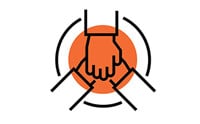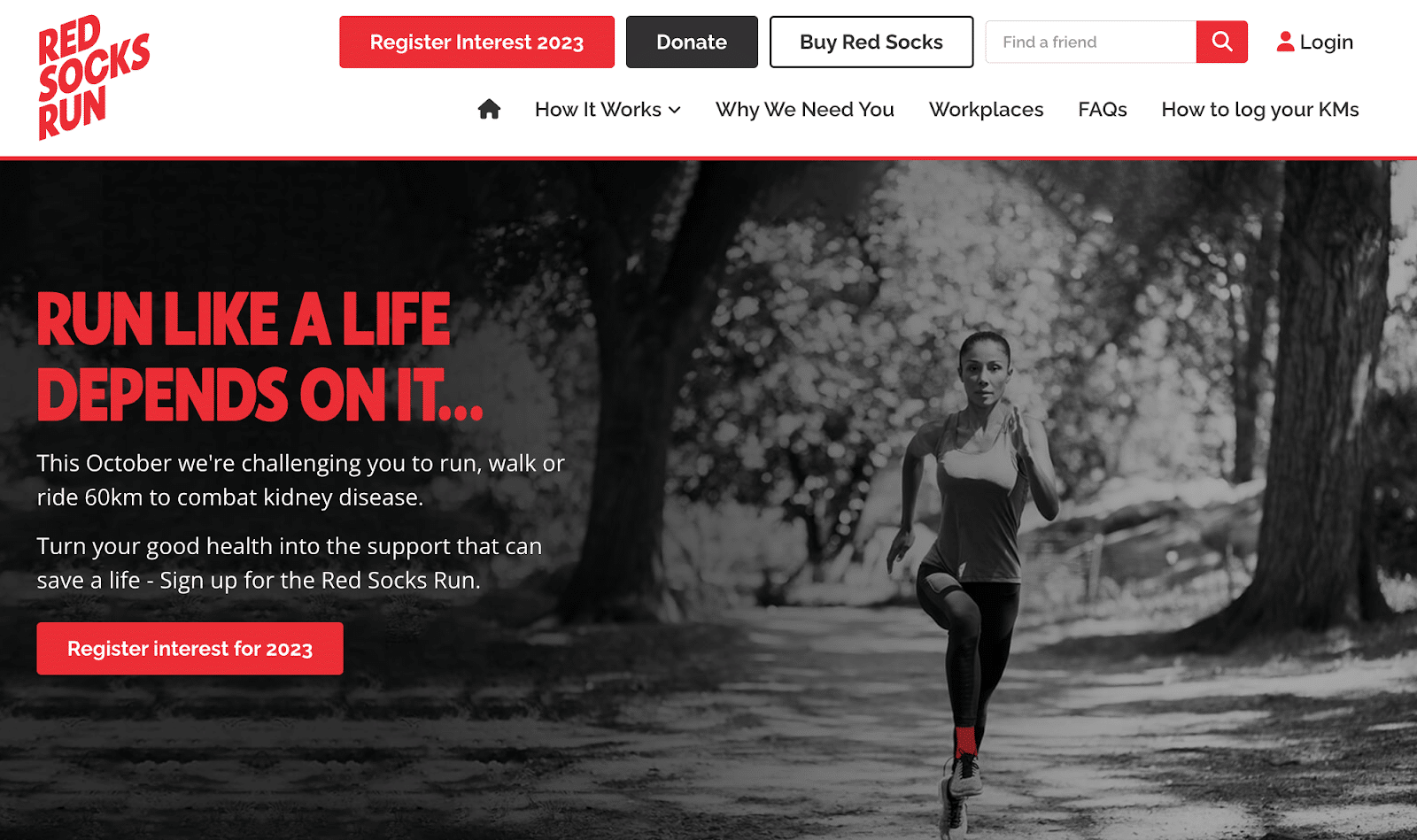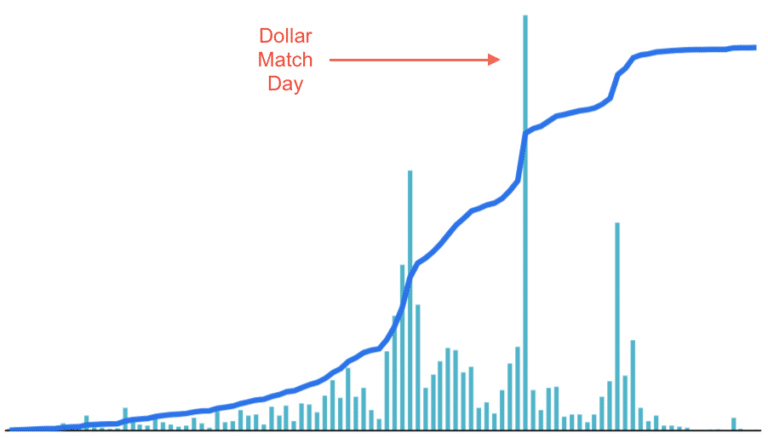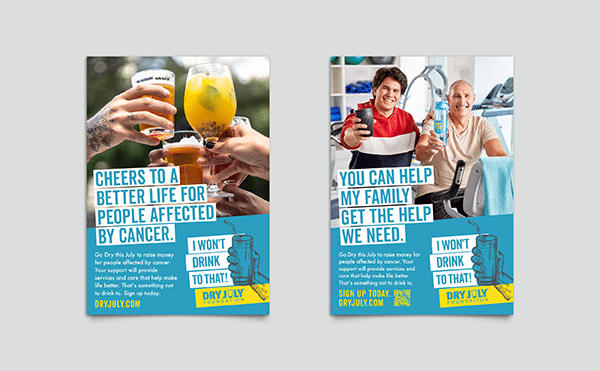
Motivating your P2P fundraisers
— Written by Samara Gentle, Head of Digital Fundraising and Marketing at Marlin Communications.
As professional fundraisers who work on peer to peer (P2P) events, we all want to know the best ways to motivate our fundraisers and help our events grow stronger every year. . ‘Average raised’ is a key metric for P2P events and helping push that number up can mean incredible revenue increases for your organisation.
When our fundraisers are motivated and engaged, they are more likely to put in the time and effort needed to raise funds effectively. They may also be more creative in their approaches to fundraising, bringing fresh ideas to the table that can help to expand the reach of the campaign.
The Cause
A big chunk of your fundraisers will be motivated by their causal connection. Usually they have a deeply personal link to your organisation.
These are your best and most passionate fundraisers, they get why your organisation exists. Your mission is to continue to nurture them throughout the campaign. This means making sure the cause is at the centre of all your communications to this particular cohort.
For those who don’t have a strong causal connection, building that through the event is important. This requires a slightly different approach. Show these supporters the real faces of people/animals/landscapes that will be positively impacted by their fundraising. Where possible, share with them the tangible outcomes of their fundraising efforts.

Incentives
This won’t come as a surprise, but people love incentives. It’s often the little push they need to finalise registration or to hit that new fundraising goal. It also gives people that extra motivation to do something, like go back out to their networks again to ask for support.
Some examples of what incentives you can consider:
- Merchandise – like t-shirts, shirts, sweatbands etc, these help people feel part of the community. They’re also great for brand awareness and helping create user generated content you can use in future years.
- Prizes – these are tangible items like headphones, wireless speakers, vouchers etc. Ensure your prizes are relevant to your audience, for example fitness related prizes for fitness challenges.
- Gamification – having a special club or title when someone hits a particular fundraising goal can be just as good as a physical prize. It can be seen as a status symbol of the event that their profile page has a unique badge or different colouring. Or just the acknowledgement in an email that they’re a Superstar Fundraiser.

Dollar Match Day
Dollar match days can have an incredible impact on your event’s revenue. We have seen events generate over 30% of their total revenue by including a dollar match day.
There are two parts of a dollar match day that make them powerful:
- It creates an additional reason for a fundraiser to reach out to their network
- It gives a lurking donor the reason to finally give to their friend/family member/colleague

The key to a successful Dollar Match Day is to is strategically schedule it in a period in the campaign where you have the majority of your fundraisers signed up, and a natural lull in fundraising. For a month-long challenge, that may be smack bang in the middle of the month. The reason for this is to not cannibalise already high fundraising days such as the first and last day of the challenge month.
Communications
Communicating with your fundraisers often (and authentically) is vital in maintaining motivation.
Much like incentive prizes, communication touch points are something fundraisers say they don’t need – but the data tells us otherwise! You need to communicate regularly with your fundraisers with valuable information that speaks to who they see themselves to be.
See the word ‘valuable’? This part is important. Every time you communicate with a fundraiser, whether it’s an email, SMS, phone call, there should be a clear purpose. Every piece of information should also be helpful.
For example, peppering your fundraising communications with reminders to fundraise gets old quickly. Instead, try interspersing the message to fundraise with case studies of the real people they’re helping, tips for connecting up their fitness apps to their page, how to add blog updates or links to resources. These all become purposes to communicate, because you’re adding value.
Resources/Support
How important are resources? I’m here to tell you they are SUPER important. The easier we can make it for people to pretty much copy and paste, the more likely they will take action.
Here are some suggestions of resources you can create to support your fundraisers:
- Social media tiles for milestones, i.e. hitting $X raised
- Posters for putting up around the workplace
- Drafted emails that can be copied and pasted
- Virtual backgrounds for online meetings
- Challenge/event tips and tricks
A lot of these resources can be repurposed in your communications regularly. Share them in your event Facebook page and house them on your website where they’re easy to find.

Community Building
Whether you’re running a physical or virtual event, community building plays a strong role in both, just in slightly different ways. For physical events you’re bringing people together for the one event/cause. When an event is virtual, you often need to use something like a Facebook group to help foster that community feel.
Facebook groups also provide another touchpoint for your organisation to communicate vital information. More importantly it allows people taking part in your event to connect and interact with each other, cheereach other on, share their personal stories and more.
Facebook groups also enable you to access and seek permission on user-generated content easily, incorporating the real people of the campaign into your emails and marketing.
As you can probably guess, a Facebook group isn’t something you can set and forget – time is required to nurture and moderate it. . We would also recommend that the signatory on your event communications is the organisation representative in the group who responds to comments and posts information.

